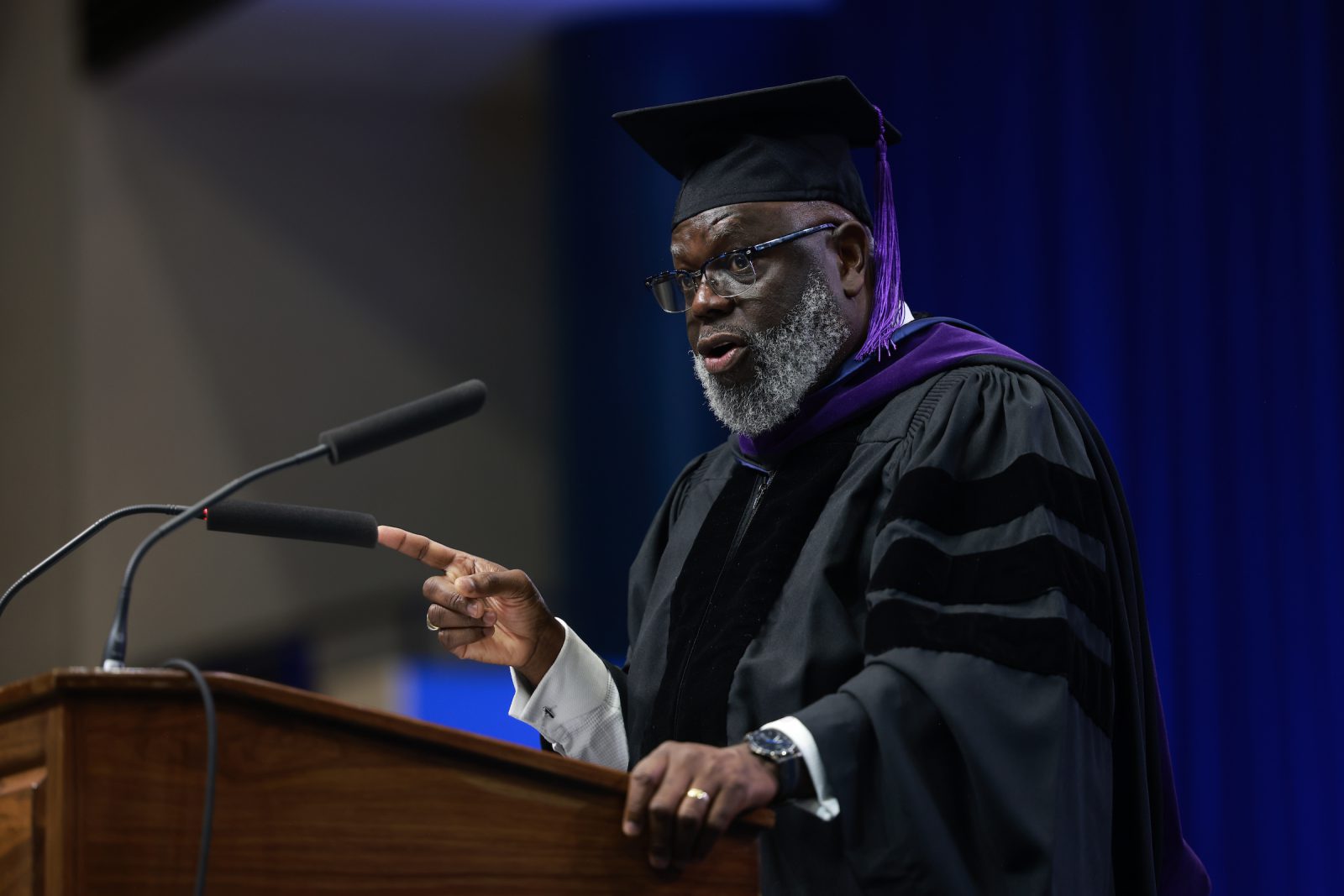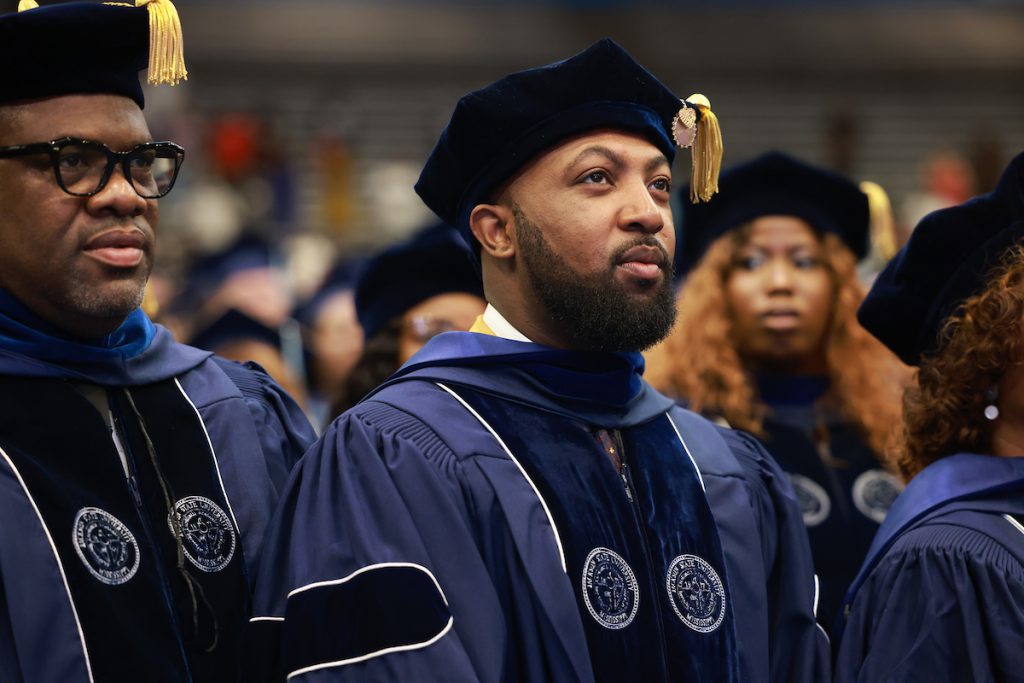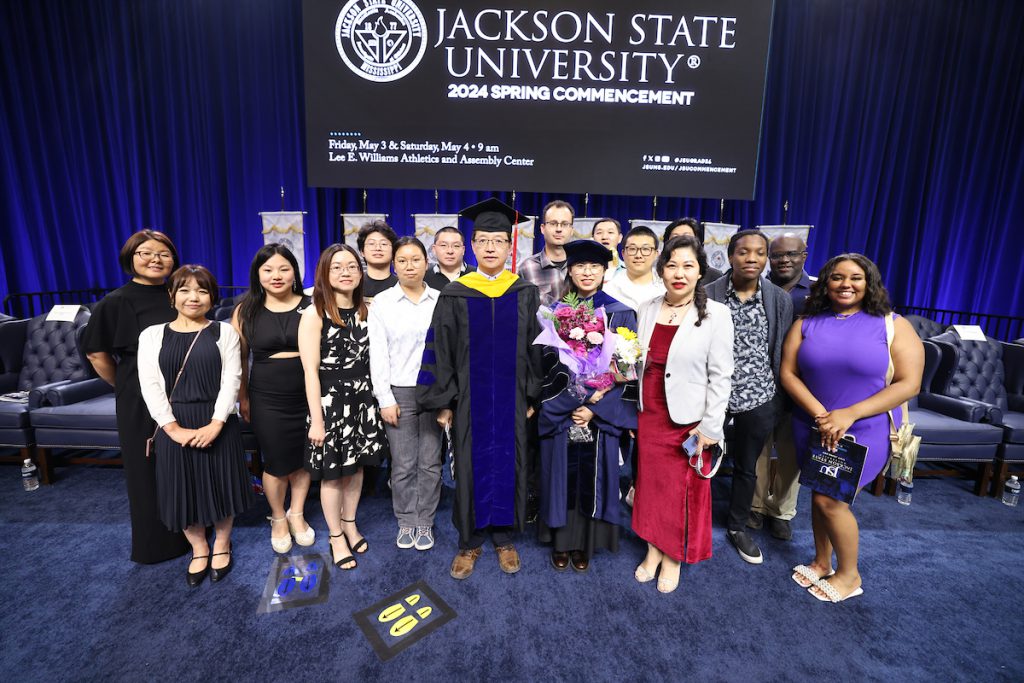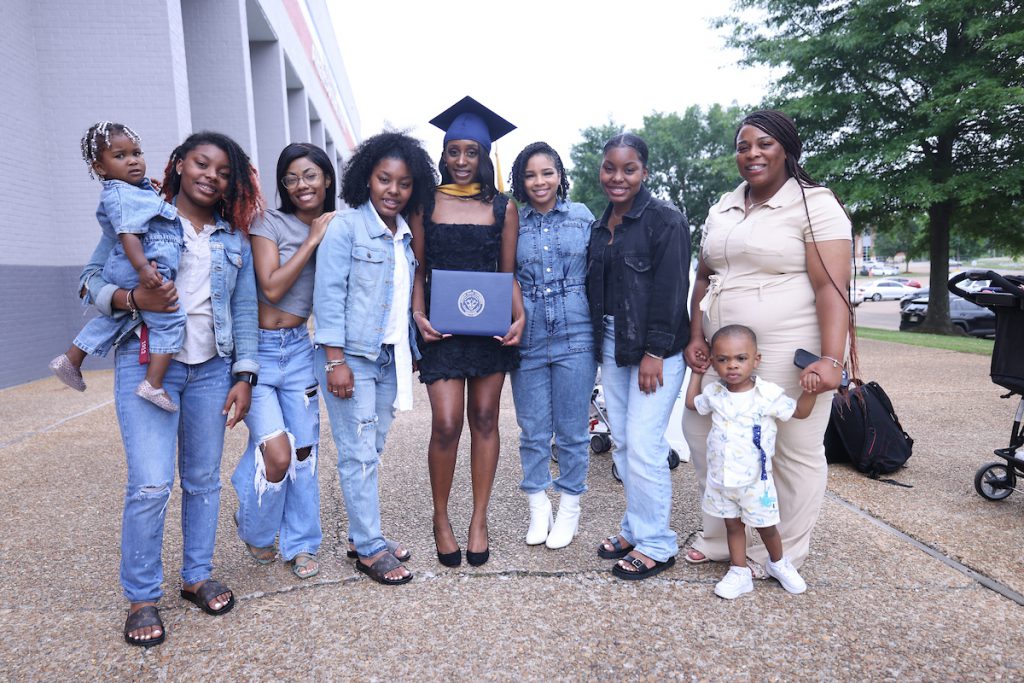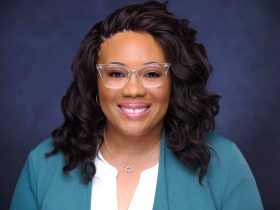By Rachel James-Terry
Jackson State University’s Spring 2024 Graduate Commencement, held at the Lee E. Williams Athletics & Assembly Center on Friday, was a vibrant affair, honoring more than 300 students donned in a mix of blue regalia, hoods, stoles, and honor cords. Among them, 115 distinguished graduates from the Golden Class of 1974 were celebrating their anniversary.
JSU President Marcus L. Thompson, Ph.D., acknowledged the university’s nurturing village of faculty and staff while paying homage to the friends and families who uplifted graduates throughout their trek to commencement. He then extended felicitations to the Class of 2024.
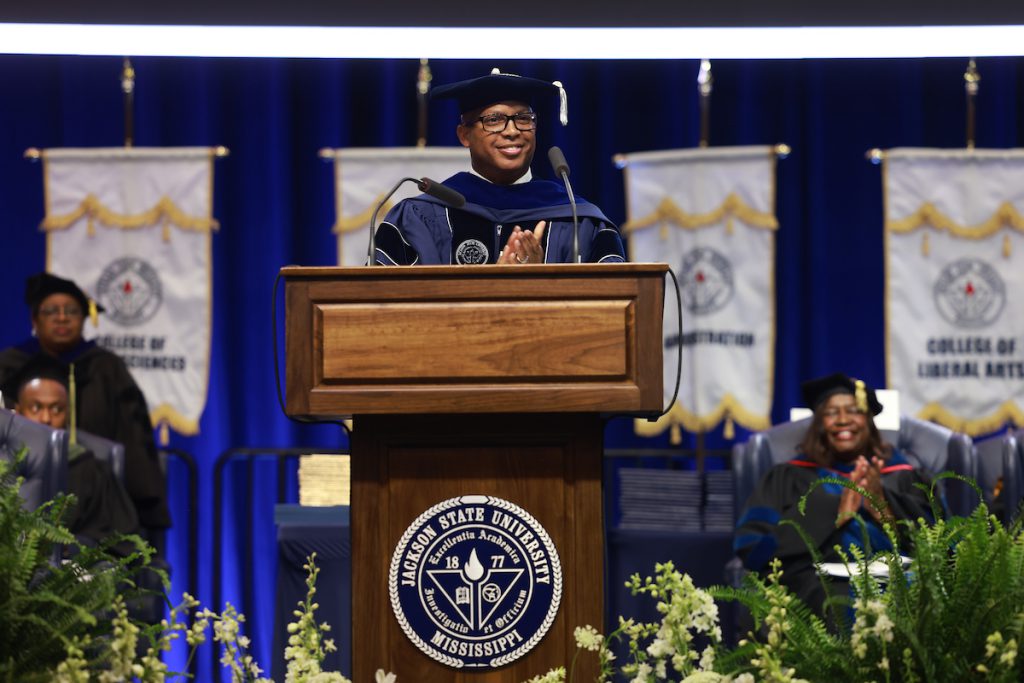
“This is your day. We are here to celebrate you. So, I encourage you to enjoy this accomplishment, for it is a tremendous milestone in your life and a major step in your career. Congratulations, and enjoy your ceremony,” Thompson said.
The keynote, United States District Judge Carlton W. Reeves, would receive a standing ovation by the end of his speech. A magna cum laude graduate of JSU, Reeves assumed office on December 30, 2010. Prior to his nomination by President Barack Obama, he was engaged in the private practice of law with Pigott Reeves Johnson, P.A., a law firm he co-founded in 2001.
Embracing the spirit of the occasion, Reeves urged the graduates to stand and shout out their loved ones for holding them down during their higher learning aspirations. He also had the audience wish his daughter, Chanda, a Happy 30th Birthday, in a warm display of paternal tenderness.
Throughout his address, the Yazoo, Mississippi, native shared personal anecdotes, including meeting his wife, Lora, at the HBCU, and listening to Jesse Jackson who visited the school during his presidential bid in the early 80s. He talked about being inspired by Jackson’s words and how he and Lora spent their first date registering to vote.
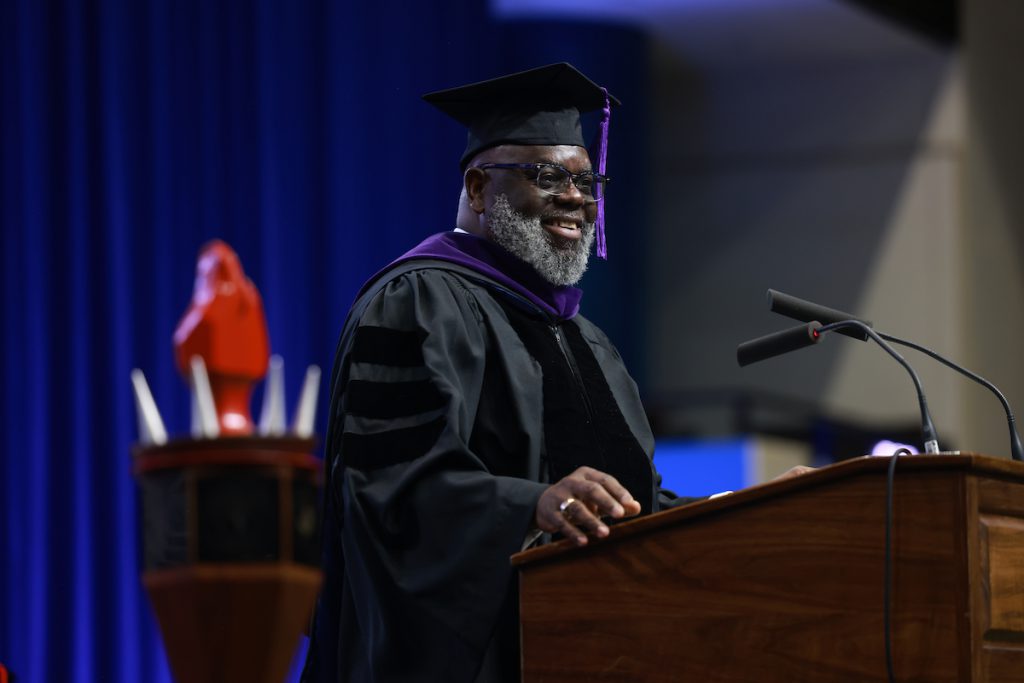
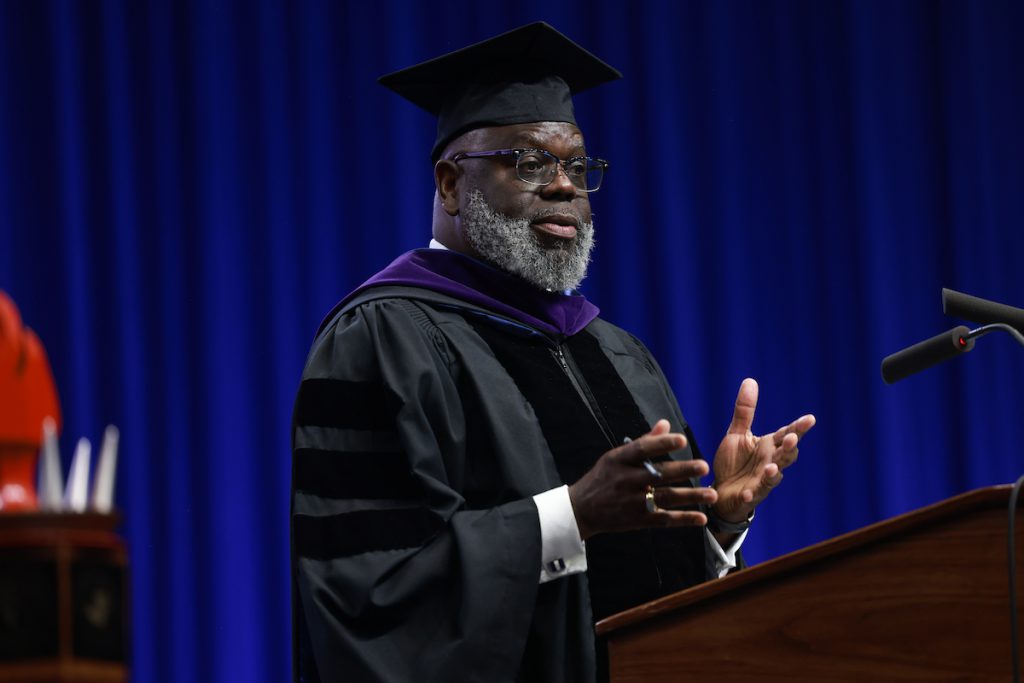
Returning to the present, Reeves highlighted the achievements of fellow JSU alumna Senator Laphonza Butler, who served as the undergraduate commencement speaker on Saturday. He commended her as an exceptional human being and one of the most remarkable people JSU has ever produced. He encouraged the audience to watch her “maiden speech” delivered on the floor of the U.S. Senate on January 17.
“This is the nation’s third Black woman, US Senator, a child of Magnolia Pike County, a proud alum of Thee I Love who represents California, a state of 39 million people, or as I like to say, 13 Mississippi’s. She may be the newest member of the Senate, but she is not new to the struggle and work of justice,” said the highly-decorated judge.
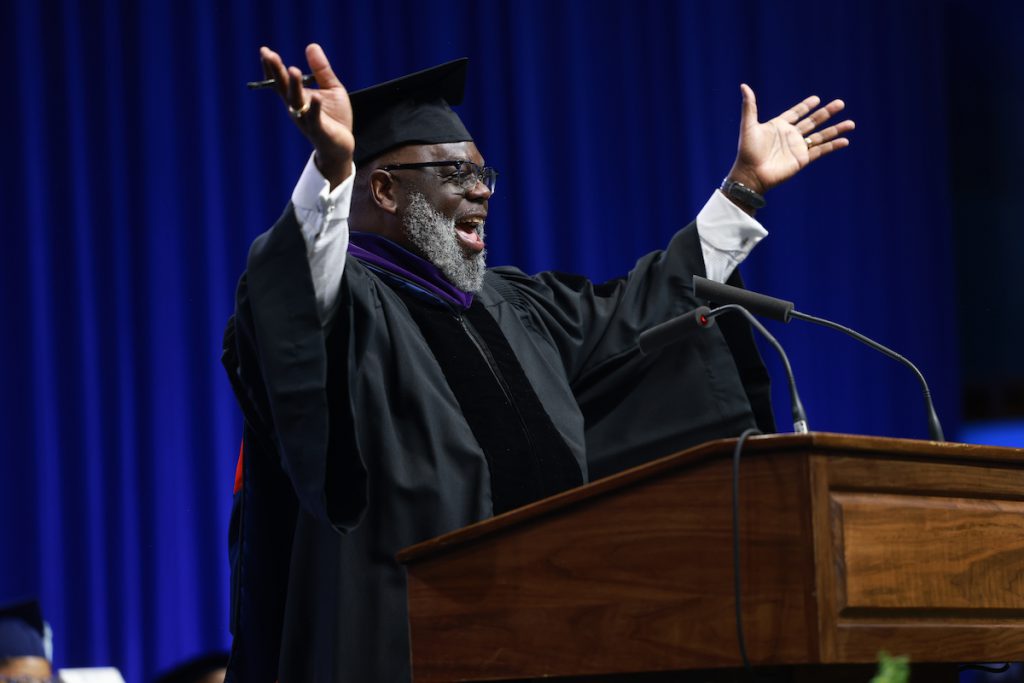
Like Reeves, Butler matriculated through the same Department of Political Science. It is a department that he speaks of fondly, praising the leadership of professors like Leslie McLemore, Ph.D., Mary Coleman, Ph.D., Charles Henry Holmes, J.D., and the influential roles of others who shaped his life.
“I love to share with everyone what that political science department did in those years between 1982 and 1986. Those four years caused Tiger Pride. Tiger Pride found its way into the best law schools in the country. Yale, Harvard, Stanford, Virginia, [the] University of Texas at Austin, Georgetown, Northwestern Vanderbilt, Emory, Tulane, Iowa, Howard and Southern. Just to name a few,” said Reeves, naming the schools that JSU political science alums went on to attend.
He pointed out how the administrators and professors nurtured, dared and prepared students for life beyond their college days.
“Jackson State has brought together a bunch of people, and I give you all a round of applause for showing that HBCU love like nobody else can do,” said Reeves, a three-time recipient of the Magnolia Bar’s highest honor, the R. Jess Brown Award.
In repartee fashion, he empathized with the challenges associated with the post-secondary experience, including the taking of numerous exams, drafting, and revising of theses and dissertations, rearing children, and shrugging off naysayers.
“So, after all that struggle, today marks the day you have reached the mountaintop. Few have ever reached this peak and even fewer had such a steep climb to get here. So, it is my privilege to be on this summit with such remarkable people like you,” he said.
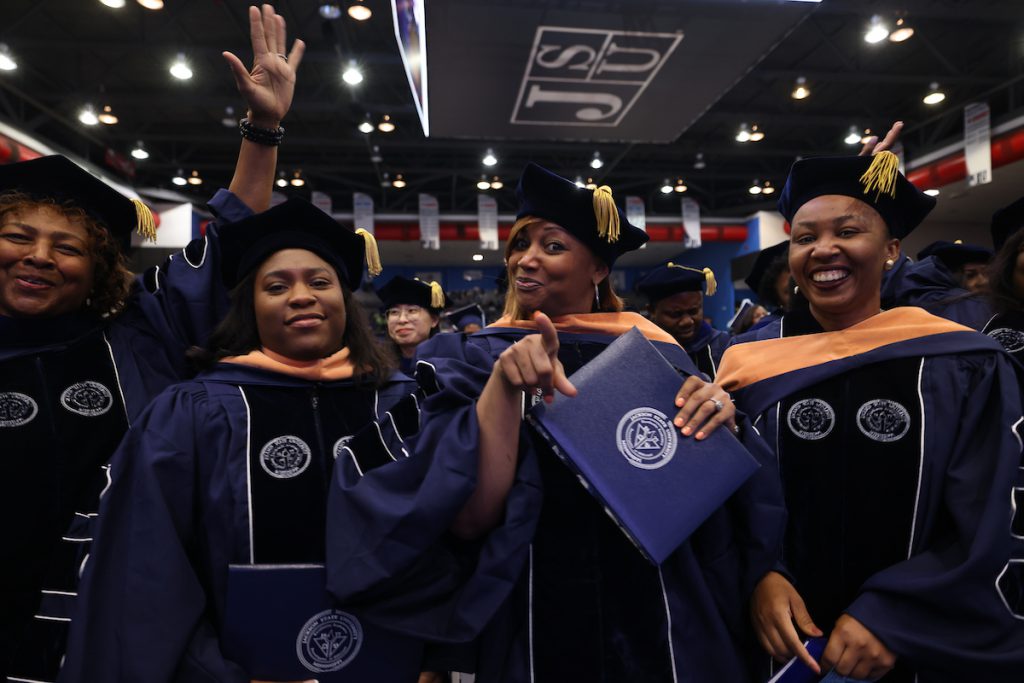
Transitioning to societal issues, Reeves drew parallels between historical events and contemporary challenges, urging graduates to utilize their education to effect positive change in a troubled world.
It is a world, according to Reeves, where protestors are being beaten and people calling themselves the goon squad are patrolling the streets, referencing the six white former Rankin County law enforcement officers recently convicted of the torture of two Black men. JSU alum Trent Walker was one of two attorneys who defended the victims.
“It is time when our neighbors, our coworkers and our fellow countrymen tried to overturn our democracy. It is a time when those same fellow countrymen flagrantly carried the Confederate flag throughout our House of Representatives,” said Reeves, clinching the sides of the podium. “It is a time when they were hurting and killing those who stood in their way. It is a time that these marauders and felons who stormed our house are held as heroes by some and we give promises of pardon for all of them.”
He then quoted Jon Bon Jovi’s 2020 release “American Reckoning,” a song the Rock & Roll Hall of Famer wrote after the murder of George Floyd. Calling the singer one of the great storytellers, Reeves recited the lyrics: “America is on fire. There’s protests in the street. Her conscience has been looted, and her soul is under siege. Another mother’s crying as history repeats. I can’t breathe.”

In his raspy tenor, Reeves voiced that people may ask what a few degrees can do in a world going to pieces before stating that the answer was right there in the room, among those dressed in yellow gowns and caps. The answer to times of trouble, Reeves said, could be found in the lives of the Golden Class.
“The class of 1974 was the first to begin as freshmen at Jackson State University, not Jackson State College. They grew up as a class of 2024 did in an era of progress. They witnessed the Civil Rights movement in their own backyards; The Freedom Summer across Mississippi in 1964; The March Against Fear that ended in Jackson in 1966; and The Mule train to Washington, DC in 1968,” he chronicled.
Reeves shared how the Golden Class saw the movement paid off with the Civil Rights Act of 1964, the Voting Rights Act of 1965, the Fair Housing Act of 1968, the election of Robert Clark, who became the first African-American member of the Mississippi Legislature since 1894. And when the Golden Class began applying to Jackson State in 1969, children like him were prepared to enter the first grade during a time when classrooms in Mississippi were first integrated.
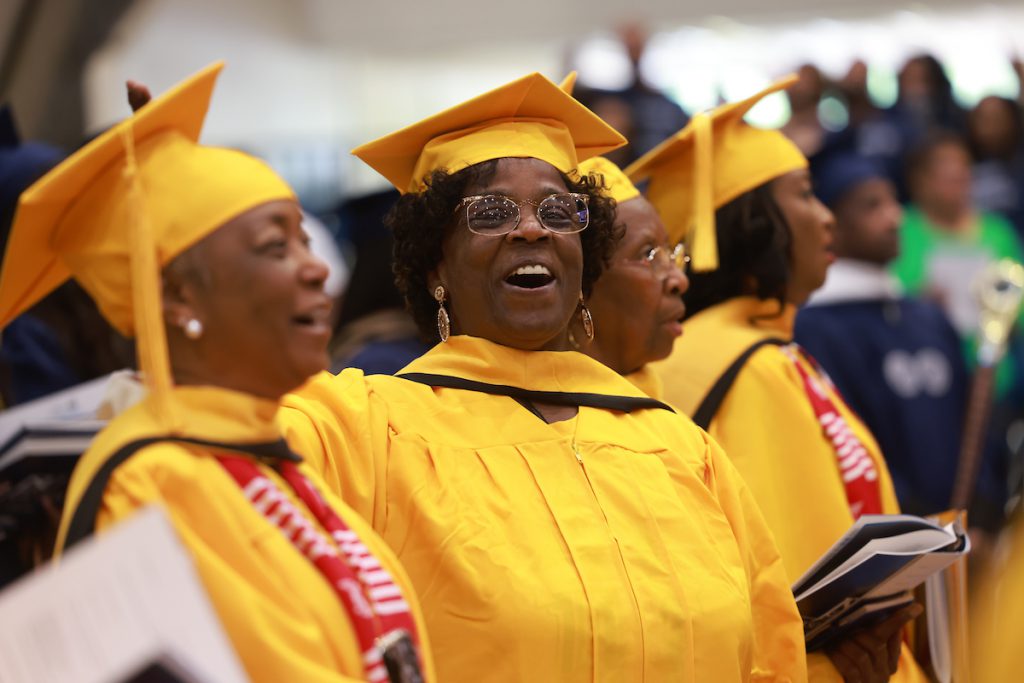
The judge pointed out that the Golden Class had entered a period that felt like a mountain top, much like the feelings of commencement for the Spring Class of 2024. He then referenced the current protests taking place across college campuses and their similarities to what was taking place during the 1970 Kent State massacres and the Gibbs-Green tragedy, where two students were killed and dozens injured by law enforcement on Jackson State’s campus.
“Black kids who opposed the draft, the war in Vietnam, those kids who opposed their treatment by white people in power simply congregated on campus. The government called in the local police, the all-white highway patrol led by the original Lloyd Goon Jones, and the National Guard,” he recalled.
The audience listened intently as Reeves shared how officers blamed a “so-called sniper,” a thrown soda bottle or angry shouts of Black teenagers as justification for “lighting up” unarmed students in front of Alexander Hall for 28 seconds. He then gave a pregnant pause for the same duration, letting the silence linger.
Reeves then vividly described how over 150 rounds were fired, and 400 shots marred the dormitory.
“A dozen people were wounded. Two boys lay dead. One Philip Gibbs, a 21-year-old junior studying political science,” said Reeves, referencing the death of the JSU student who left behind a pregnant wife and toddler.”
Reeves began rattling off names like Cornell Brooks and other young, talented Black men aspiring for a better life through education who could have met the same fate as Gibbs. He then said, “That could have been me.”
He also acknowledged the unfortunate death of 17-year-old high school student James Earl Green, who was also killed in the blatant violence of the police that night, weeks away from his graduation.
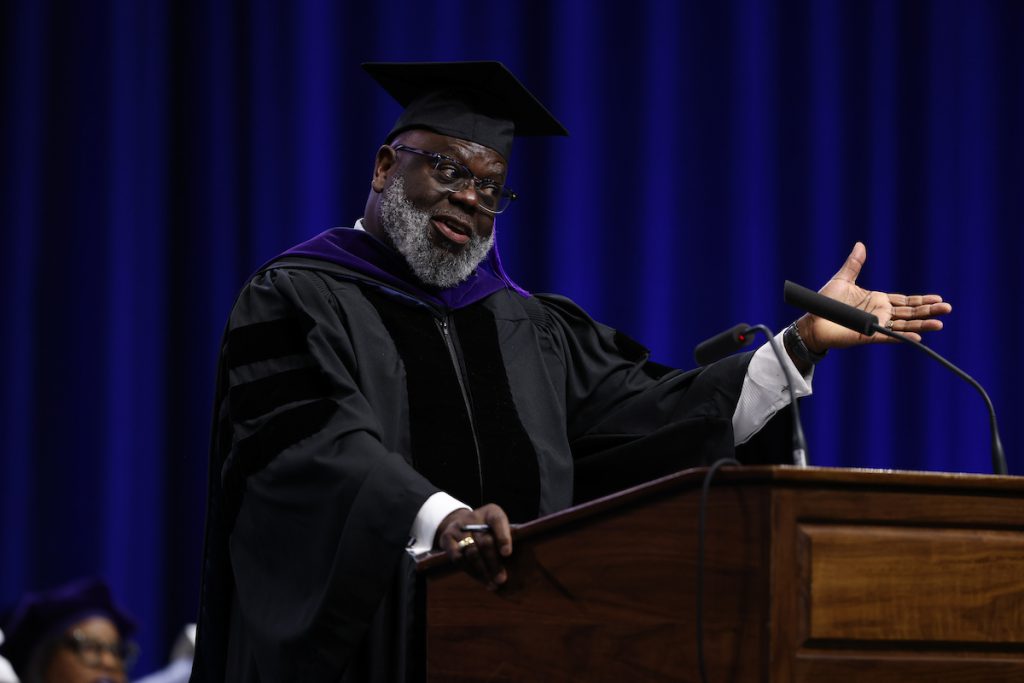
“The golden class could have easily taken the killing of Gibbs and Green as the final nail in the coffin. [They could’ve taken it as] a message that their future was a place where hope went to die, where resistance was futile, where change was impossible. If that was the message of Jackson State killings, it was not headed by the golden class,” said Reeves, as applause sprung from the audience.
Instead, like the class of 2024, the class of 1974 persevered, he exclaimed.
“Yes, they got their degrees, but they did so much more because a degree from Jackson State isn’t just proof of you as an individual – learned and grew. It is evidence that you learned and grew with others. It’s that communal development, a shared sense of purpose that makes an HBCU education so unique, so powerful, so important,” he sermonized, which was again met with applause.
Reeves said the Golden Class’s unyielding resilience and collective struggle as members of a community built through Jackson State are the reasons people “who look like us could be in this room today.”
In closing, Reeves encouraged the Class of 2024 to leverage their degrees and community to be change agents. “You don’t need to be a federal judge or United States senator to change the world. All you need is to be a member of a community like the one you’ve already built,” he said.
He pressed the graduates to stand on the stage and examine the people in the room.
“People in blue gowns, people in yellow gowns, people in no gowns at all. They are the meaning of the degree being placed in your hands. You have the power. You have the knowledge. You have the key. Go do justice. God bless you. God bless Jackson State University, Thee I love, and may she live forever.”
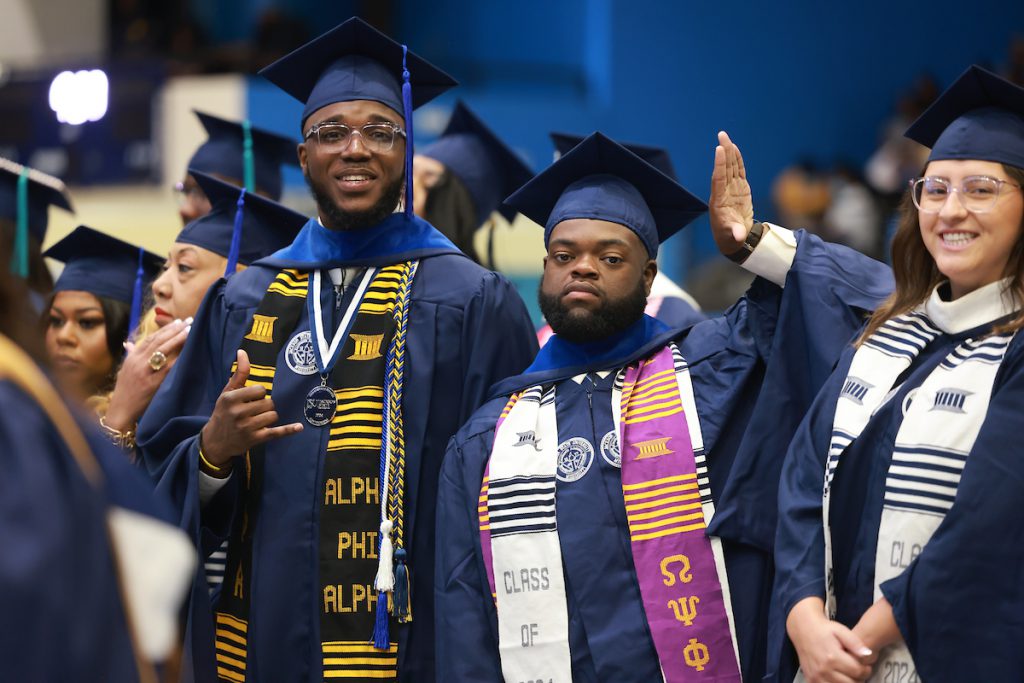
As the sun sets on their time at Jackson State University, brothers from Omega Psi Phi Fraternity, Inc. and Alpha Phi Alpha Fraternity, Inc. stand side by side, radiating pride and brotherhood. (Photo by William H. Kelly, III/JSU)



